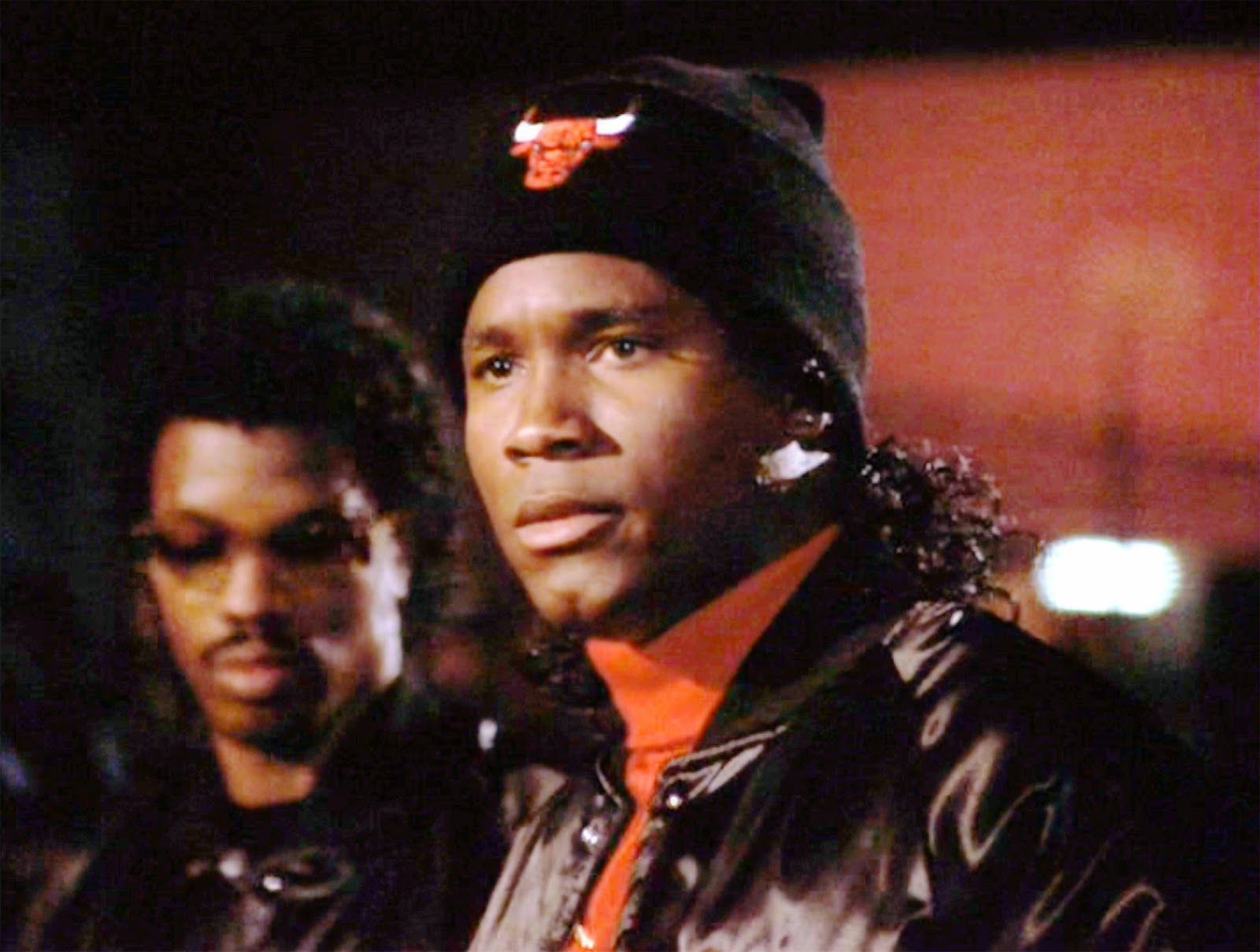The question of "who killed Lloyd Avery" brings with it a sense of mystery, doesn't it? It makes you wonder about events, about consequences, and about what it means when a life comes to a stop. You see, the very idea of someone being "killed" is a powerful one, carrying a lot of weight in our everyday conversations and stories. It's a word that, basically, gets right to the point of an ending.
When we hear a phrase like "who killed Lloyd Avery," our thoughts often go to a specific moment, a final act. Yet, the way we talk about something being "killed" or brought to an end can take on many forms, too it's almost. It isn't always about a person stopping another person's breath. Sometimes, it’s about plans, or even ideas, reaching their conclusion, often in a rather abrupt way.
So, what does it truly mean for something to be "killed," and how might that help us think about a question like "who killed Lloyd Avery"? We're going to look at the different ways this word is used, from its most serious meaning to its more everyday, figurative sense. It's about exploring the idea of things coming to a complete stop, whatever they may be, just a little.
- Lonzo Ball Songs
- Brittany Aldean Clothing
- How Many People Watch General Hospital
- Att Service Check
- Nikki Reed Videos
Table of Contents
- What Does It Mean to Be Killed?
- Different Words for an End
- The Opposite of an End
- How We Talk About Things Ending
- When Things Are Made Harmless
- Ending Something Completely
- When Ideas Meet Their End
- Real-World Events and the Impact of Actions
What Does It Mean to Be Killed?
When we use the word "killed," we're talking about something coming to a complete stop, especially when it comes to life. It's the past form of the word "kill," whether we're thinking about something that happened in the past or something that has already been done. The core idea, you know, is about causing someone or something to no longer be alive. This is the simplest way to put it, arguably.
The meaning of "kill" is, at its heart, to take away life. If we're asking "who killed Lloyd Avery," we are really asking who caused him to stop living. It’s a very direct action, one that brings about a final state. This core meaning shapes how we think about the question, so it's a good place to start, more or less.
It's interesting to consider how this basic idea applies to different situations. Whether it's a person, an animal, or some other living thing, when we say it's "killed," something or someone has made it stop breathing, stop moving, stop being. That's the plain truth of it, in some respects.
- Dolphins Head Coaches
- Peace Of Mind Boston Lyrics
- Kaley Cuoco Fakes
- What Zodiac Is January 15
- Voice Of Rocket
Different Words for an End
The English language has many ways to talk about something being brought to an end, especially when it involves life. For instance, instead of saying "killed," you might hear words like "destroyed." This word often suggests something being taken apart, or made to no longer exist in its original form. It implies a complete breaking down, you know.
Then there's "murdered," which usually points to a person being brought to an end by another person, usually with bad intent. This word carries a specific legal and moral weight that "killed" doesn't always have on its own. It's a very particular kind of ending, typically.
"Dispatched" can mean sending something away, but in this context, it often means ending something quickly, sometimes without much fuss. It suggests a swift conclusion. Similarly, "slaughtered" often refers to many lives being ended at once, often in a brutal or indiscriminate way. This word, really, brings to mind a large-scale event.
Other words like "slew" are older ways of saying someone was brought to an end, often in battle or a violent act. "Took" can be a very simple, almost quiet way of saying a life ended, as in "the illness took him." "Assassinated" is reserved for when a prominent person is brought to an end, usually for political reasons. Each of these words paints a slightly different picture of how an end might come about, you know, in a way.
Finally, "claimed" can also refer to something bringing about an end, as in "the fire claimed many homes." It suggests something powerful taking possession of what was there before, bringing it to a stop. All these words, you see, help us understand the many shades of meaning when we consider how someone, or something, might be brought to an end, perhaps even in the case of "who killed Lloyd Avery," though we don't have specifics here, of course.
The Opposite of an End
Just as there are many ways to talk about something being brought to an end, there are also words that mean the complete opposite. Thinking about these helps us understand the full range of possibilities. For example, "animated" means to bring something to life, to give it spirit or movement. It's about starting, not stopping, if you think about it, basically.
"Raised" can mean to bring something up, to help it grow, or even to bring it back into existence. This is a far cry from the idea of something being stopped. Similarly, "restored" means to bring something back to its original, good condition, or to bring it back into being after a period of not existing. It’s about renewal, you know.
"Revived" and "resurrected" both speak to bringing something back to life after it seemed to have ended. These words suggest a powerful return, a reversal of a final state. They are about overcoming an end, so to speak. "Nurtured" means to care for and encourage the growth of something, which is the very opposite of bringing it to a stop. It's about fostering life, you see.
Considering these opposing ideas helps us grasp the full weight of what "killed" truly means. When we ask "who killed Lloyd Avery," we're contemplating an action that stands in stark contrast to all these acts of bringing forth, sustaining, or renewing life. It highlights the finality of the act, as a matter of fact.
How We Talk About Things Ending
The way we put words together to describe an end can tell us a lot about the situation. The simple phrase "how to use kill in a sentence" points to the fact that this word fits into our language in many ways. It can be a straightforward statement of fact, or it can be part of a more complex idea. For instance, we might say "the cold killed the plants," which is a clear, direct statement about cause and effect, you know.
Sometimes, the word "kill" is used in a more general sense to mean destroying something completely. This often comes up in verb phrases, like "kill off." When we say "the invaders killed off all the inhabitants of the town," it means they wiped them out entirely, leaving no one behind. This suggests a thorough and often brutal removal, very.
This idea of complete destruction isn't always about living things, though. We can talk about ideas or plans being "killed" too. For example, "the board's negative vote killed the deal" means the deal was stopped completely, it could not go forward. It implies a final decision that brought something to an end, pretty much.
Or, consider "the poor economic situation has killed the plan to expand the business." Here, the situation itself is the cause of the plan's end. It wasn't a person, but circumstances that brought it to a halt. This shows how the word "killed" can describe the end of something that isn't alive in the usual sense, just a little.
Another example is "all sorts of new media are killing regional newspapers." This doesn't mean new media are literally ending the lives of newspapers. Instead, it means they are causing regional newspapers to stop existing or to lose their ability to thrive. It’s a way of talking about strong competition leading to an end. So, the way we phrase things around "who killed Lloyd Avery" might imply different kinds of endings, depending on the context, naturally.
When Things Are Made Harmless: A Different Kind of Being Killed
The word "killed" also has a specific meaning in science and medicine, especially when we talk about tiny living things like microorganisms or viruses. In this context, "killed" means that these agents have been made inactive. They are no longer able to cause harm or spread infection. This is a very particular use of the word, you know.
For example, a vaccine might contain a "killed" virus. This means the virus has been treated, perhaps with chemicals, so that it can't make you sick. It's still there, in a way, but its ability to do harm has been taken away. It's been deprived of its infectious life, so to speak. This is a controlled ending of its harmful potential, you see.
The meaning of "killed" in this sense is "being or containing a virus that has been inactivated (as by chemicals) so that it is no longer infectious." This is quite different from the idea of a person or animal being brought to an end. It's about stopping a function, rather than stopping life itself in the broadest sense. So, if we were to ask "who killed Lloyd Avery" in a very abstract sense, it could even refer to something that made him harmless, though that's a stretch for the usual meaning, obviously.
Understanding this scientific usage helps us see how flexible the word "kill" can be. It's not always about a violent act. Sometimes, it's about a deliberate process to make something safe or ineffective. This shows the word has a range of uses beyond just the most obvious ones, you know, in a way.
Ending Something Completely: The Phrase "Kill Off" and Who Killed Lloyd Avery
The phrase "kill off" carries a sense of thoroughness, of bringing something to an end entirely and often indiscriminately. It means to destroy something completely, leaving little or nothing behind. This particular verb phrase emphasizes a widespread or successive elimination. It's a very strong way to describe an ending, you know.
When we hear about "the invaders killed off all the inhabitants of the town," it paints a picture of a complete removal, a total end to everyone living there. It's not just about one person, but about a whole group being brought to a stop. This kind of action has a very broad and devastating impact, naturally.
This phrase can also be used in a more figurative sense, much like the single word "kill." For example, if a new technology "kills off" an old industry, it means the old industry can no longer operate or exist because of the new competition. It's about a complete takeover, leading to the end of the previous way of doing things, you see.
So, when thinking about "who killed Lloyd Avery," if the phrase "killed off" were used, it might suggest a broader context, perhaps something that led to the end of not just Lloyd Avery, but maybe a whole group or an idea he represented. It's a more encompassing way to talk about an end, basically.
The intensity of "kill off" means it's often used when describing a sweeping change or a devastating event. It implies that whatever was there before has been completely removed or made to cease existing. This phrase truly captures the idea of a final and absolute end, you know, at the end of the day.
When Ideas Meet Their End: Figurative Ways to Talk About Who Killed Lloyd Avery
Beyond the literal stopping of life, the word "kill" often describes the end of non-living things, like plans, ideas, or even businesses. This figurative use is quite common in our language. For example, when "the board's negative vote killed the deal," it means the deal, which was an idea or a proposed agreement, was brought to a halt. It could no longer move forward, you know.
Similarly, "the poor economic situation has killed the plan to expand the business" illustrates how circumstances, rather than a direct action by a person, can lead to an end. The economic conditions were so bad that the plan simply couldn't survive. It was stopped in its tracks, as a matter of fact.
Another common example is how new developments can cause older ones to cease existing. "All sorts of new media are killing regional newspapers" doesn't mean new media are literally causing newspapers to stop breathing. Instead, it means they are making it impossible for regional newspapers to continue operating successfully. The competition is so fierce that it leads to their end, you see.
These examples show that "kill" can mean to destroy the potential or the viability of something. It's about making something cease to function or exist in its intended way. So, if we were to ponder "who killed Lloyd Avery" in a figurative sense, it might mean what circumstances or decisions led to the end of his plans, his reputation, or perhaps even his dreams. It's a different way to think about an end, basically.
This broader understanding of "kill" allows us to use the word in many different situations, making our language more expressive. It helps us describe how things, whether they are living or not, can come to a definitive stop. It's a very adaptable word, you know, in a way.
Real-World Events and the Impact of Actions
When we hear about real-world events where lives are brought to an end, the word "kill" or "killed" becomes very serious. The news often reports on such incidents, using these terms to describe the outcomes of violent acts. For instance, a report might mention a situation where a person with a weapon causes harm to others, leading to tragic results. This is where the word takes on its most direct and impactful meaning, you know.
The news snippet about McAllen, Texas, where "a man with an assault rifle fired dozens of rounds at federal agents and a U.S. Border Patrol facility on Monday, injuring a police officer," describes a situation where actions could easily lead to lives being brought to an end. While the report specifically mentions an officer being "injured," the context of "fired dozens of rounds" and the type of weapon involved points to the potential for lethal outcomes. It’s a very stark reminder of how quickly events can unfold, typically.
Such reports, you see, highlight the severe consequences of certain actions. They show how the word "kill" relates to real events, where individuals cause others to stop living. This is the most grave application of the word, carrying immense weight and sorrow. It makes us consider the human cost of such acts, as a matter of fact.
When we ask "who killed Lloyd Avery," we are often thinking of an event similar to those reported in the news, where a direct action led to a person's life ending. It's about understanding the cause and effect in a very serious situation. The news helps us connect the word "killed" to the real-life impact it has, you know, on people and communities.
These kinds of incidents, sadly, are a part of our world, and the language we use to describe them, like "killed," reflects the gravity of what has happened. It’s a word that cuts right to the heart of the matter, describing a final and irreversible outcome. So, the question of "who killed Lloyd Avery" taps into this very real and serious aspect of language and life, obviously.
- Isha Store
- Rocket Ayer Williams
- Skarsg%C3%A5rd Family Tree
- Norman Reedus Modeling
- Kieran Lee Net Worth



